How to Talk to Your Child About Drugs

Understanding the Importance of Early Discussions
Talking to children about drugs isn't a one-time conversation—it's a series of discussions that begin early in childhood and adapt over time. Starting these conversations between the ages of 5 and 7 establishes a foundation for open communication, which becomes especially important during adolescence, a critical period for brain development and susceptibility to risk behaviors.
Understanding When to Begin the Conversation
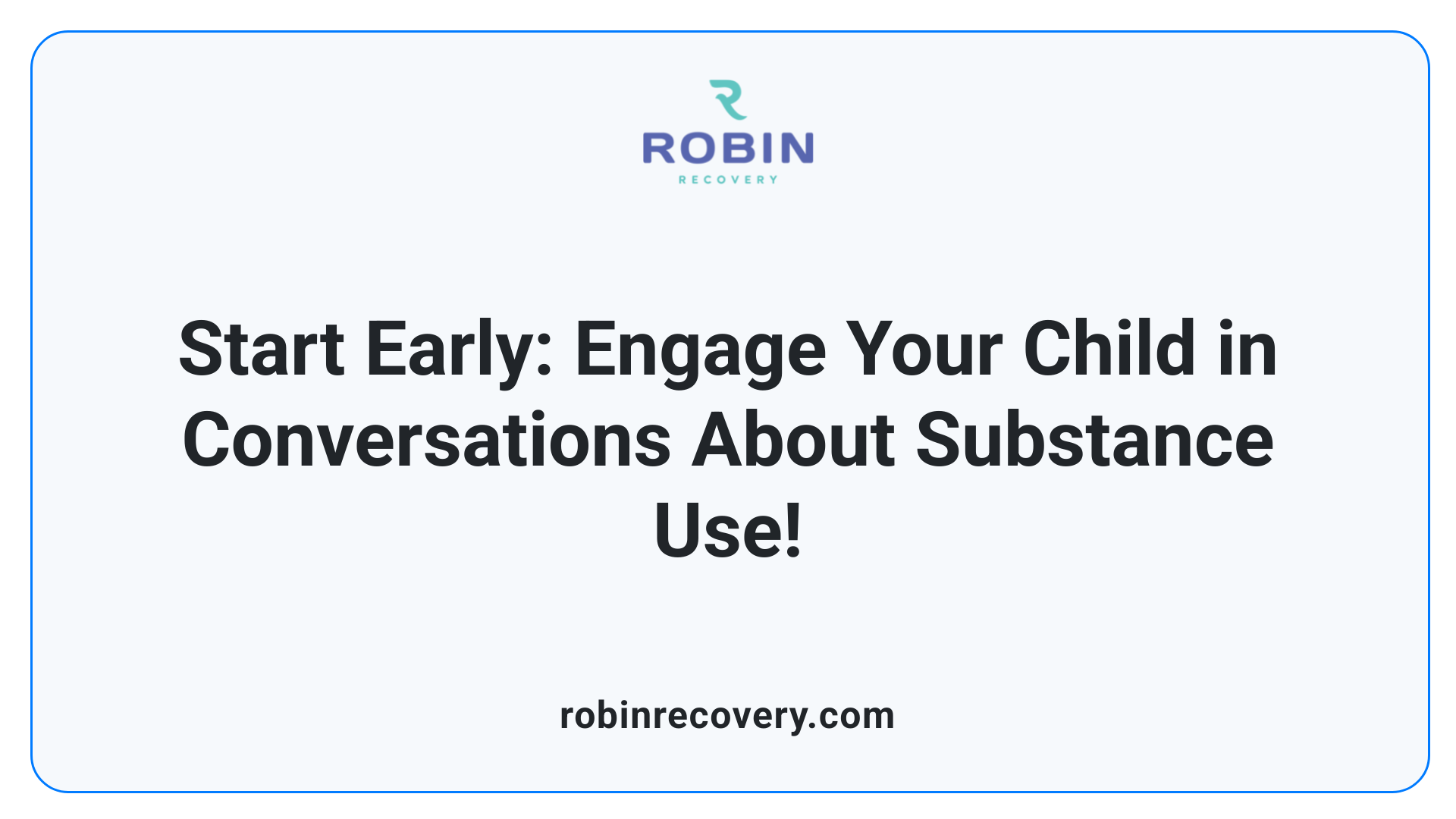
At what age should parents start talking to their children about drugs?
Experts recommend that parents start conversations about drugs, alcohol, and tobacco with their children between the ages of 5 and 7. Early engagement is crucial, especially for those with a family history of substance abuse, as they may be more susceptible to such behaviors.
Focus for younger vs. older children
For younger children, the focus should be on moderation and healthy choices. Parents can use relatable examples, like the consumption of sugar, to emphasize making responsible decisions. As children reach school age (6-9 years), it's important to clarify the difference between helpful medications and harmful substances. This helps build a foundation for understanding responsibility.
For older children (10-12 years), conversations can delve into the risks associated with substances like alcohol and nicotine. Discussions may include how these substances impact academic performance and health. The key here is fostering supportive dialogue rather than using fear tactics, ensuring they feel comfortable sharing their thoughts.
Importance of early engagement
Starting these conversations early sets the stage for ongoing discussions about substance use as children grow. By actively engaging with them, parents help their children develop healthy attitudes towards substances, preparing them to make informed choices and resist negative influences.
Initiating Conversations About Drug Use
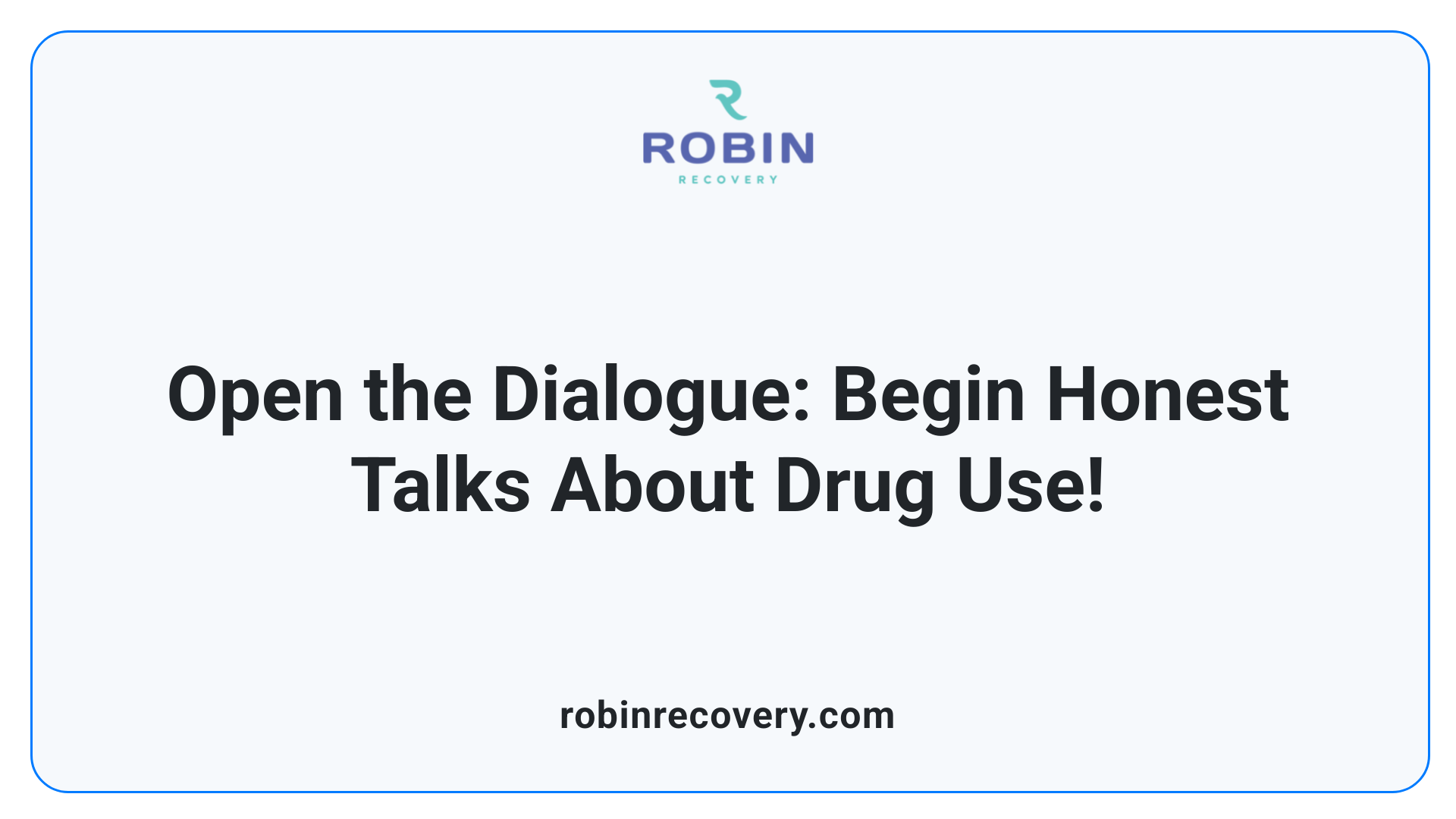
How can parents start a conversation with their children about drug use?
Parents can begin conversations about drug use by asking open-ended questions, such as what their children have heard about drugs. This approach creates a nonjudgmental atmosphere and encourages honesty.
It's crucial for parents to have accurate information about the dangers of drugs and the legal consequences surrounding their use. Emphasizing that drugs can lead to harmful behaviors and addiction can help frame the discussion. For younger children, utilizing 'teachable moments' from media or current events can also stimulate discussions about drug-related risks.
Maintaining open dialogue
Establishing an environment where ongoing conversations about substance use feel safe and non-threatening is essential. Parents should aim to have multiple short discussions instead of a single, lengthy talk. Keeping communication lines open allows children to feel comfortable returning to their parents with questions or issues.
Encouraging children to engage in positive activities—like sports or clubs—can also divert attention away from potential peer influences regarding drug use. This proactive measure aids in fostering a supportive relationship between parents and children.
Gathering and sharing accurate information
Parents should equip themselves with the right information before broaching the subject. Understanding the effects of drugs, their potential risks, and age-appropriate discussions ensures that parents communicate effectively. Reliable resources, like those from the National Institute on Drug Abuse (NIDA) or the SAMHSA National Helpline, can provide helpful insights and guidance for parents.
By being well-informed and open, parents can significantly influence their children's attitudes towards drugs, setting a foundation for thoughtful decision-making.
Addressing Drug Use if Discovered
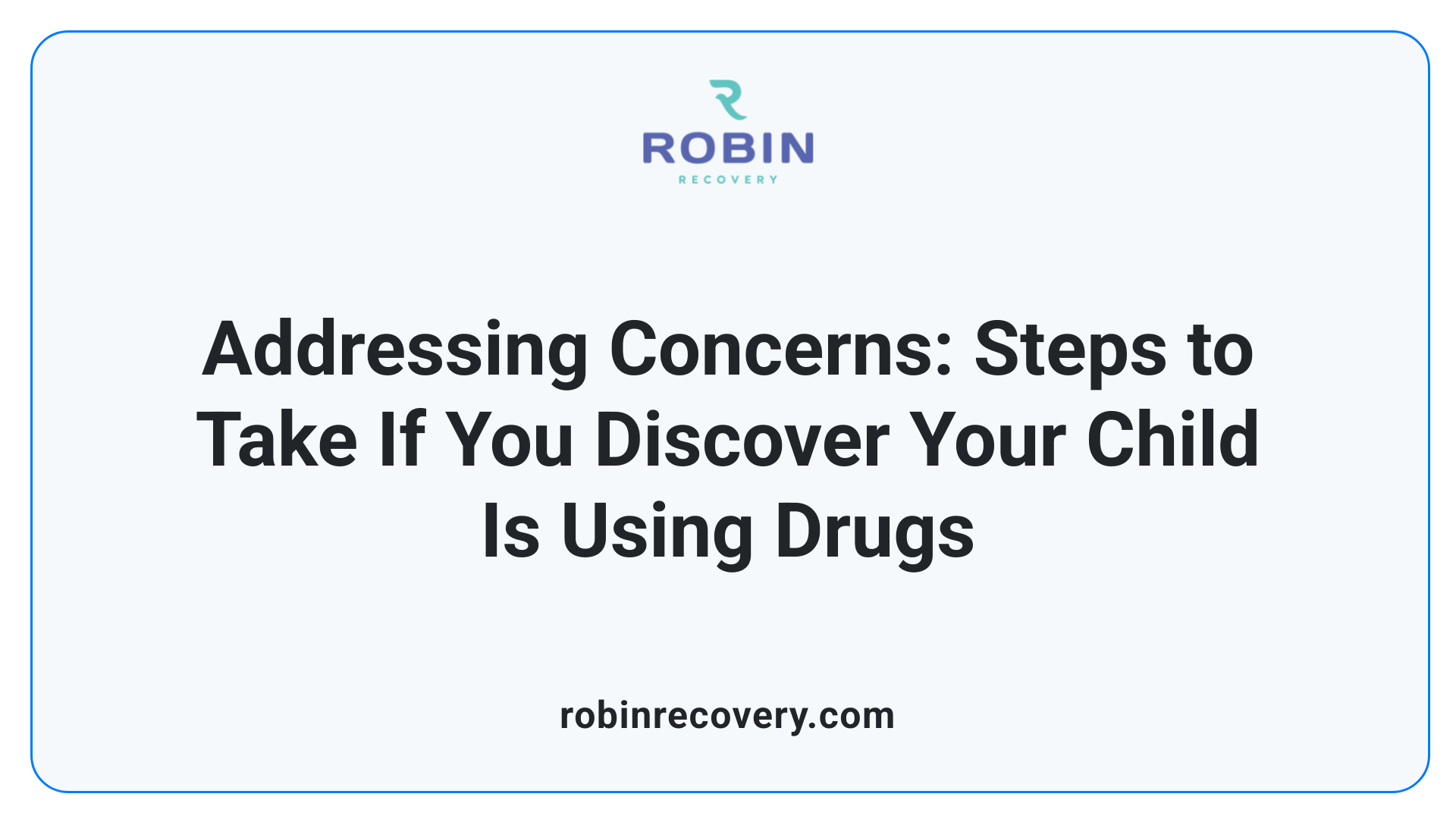
How can parents address a situation where their child is using drugs?
Dealing with a child who is already using drugs is a delicate and challenging situation. The first step is to engage in an open and calm discussion about the child’s experiences and feelings related to substance use. It's essential to initiate such conversations when the child is sober, as this facilitates effective communication. Both parties should strive for a calm demeanor, as this can encourage a more honest dialogue.
What should parents look for as signs of substance use?
Parents should remain vigilant for signs indicating potential substance use in their children. Common indicators may include:
- Mood changes: Dramatic fluctuations in behavior or emotional states.
- Declining academic performance: Struggles with grades or lack of interest in schoolwork.
- Changes in social circles: Shifts towards new friends or avoidance of previous ones.
- Physical symptoms: These can range from unusual smells to disheveled appearances.
How important is calm communication in addressing drug use?
Maintaining calm and open communication is vital. This allows parents to address concerns without confrontation. Being prepared to listen is equally important—understanding the reasons behind a child’s substance use can provide insights necessary for support. Parents should attempt to reassure the child, especially when they are intoxicated, while monitoring for any serious health issues. Regular conversations about drugs and alcohol, tailored according to age, cultivate an environment where children can feel safe discussing their choices and struggles.
Adapting Conversations to Different Ages
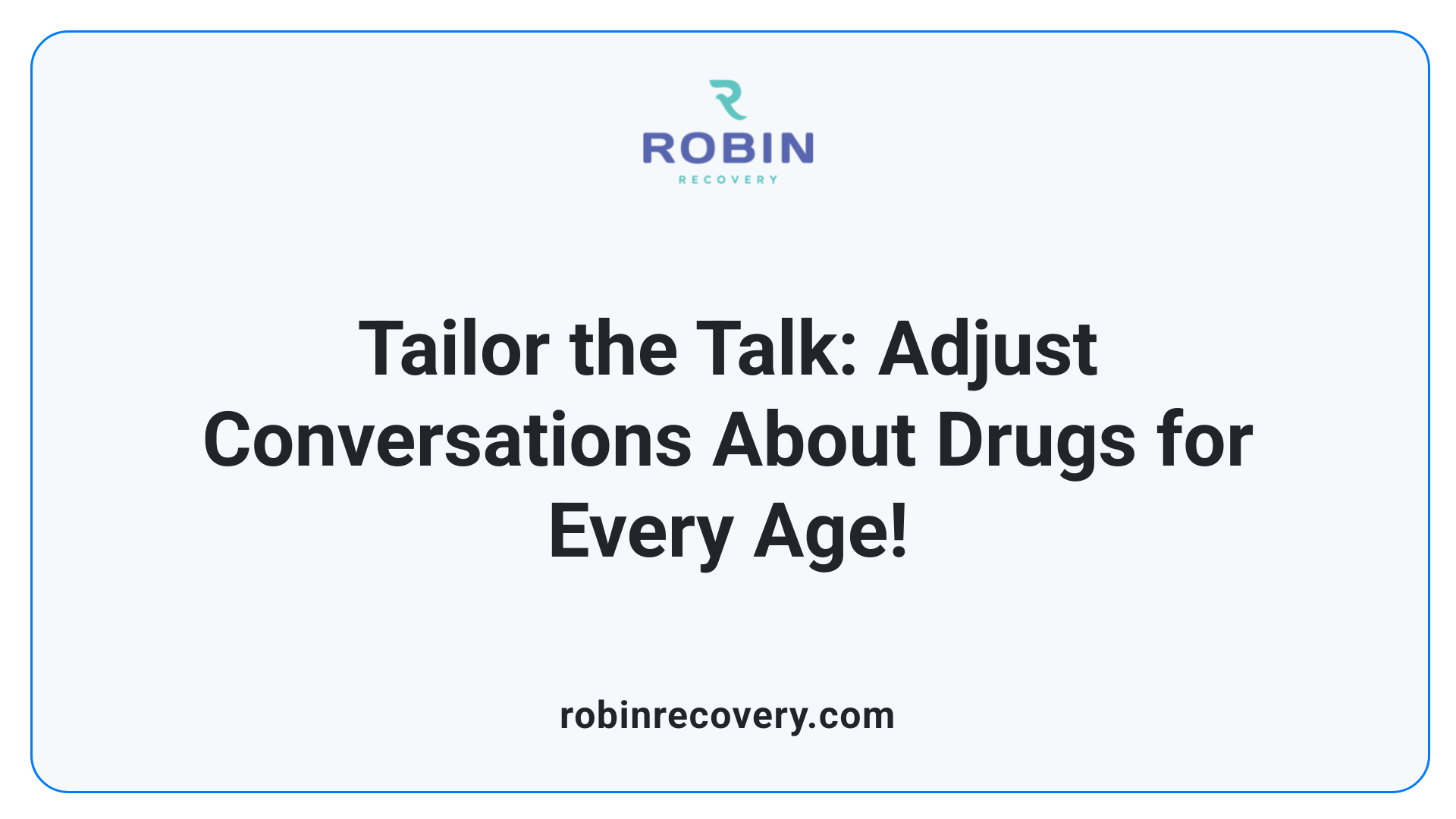
Approaches for Different Developmental Stages
Parents should tailor discussions about substance use to fit the developmental level of their children. For young children (ages 5-7), it’s crucial to explain that medications can help them feel better but can be harmful if misused. Moving into early school years (ages 8-12), discussions should revolve around what children have heard about drugs, ensuring to create a non-judgmental atmosphere.
Age-Appropriate Language and Topics
Communication with teens (ages 14-18) should involve honest dialogue about the risks of substance use, including the potential consequences of driving under the influence. Parents must adjust the complexity of the conversation, making it relatable and relevant to their child's experiences. For example, discussing current events, such as news on drug abuse, can provide context for these important talks.
Using Everyday Moments to Discuss Drugs
Everyday situations, like a news segment or a social media post, can serve as perfect springboards for conversations about substance use. This approach engages children naturally, encouraging them to express their feelings and thoughts about drugs without the pressure of a formal discussion.
Creating a Supportive Environment for Drug Discussions
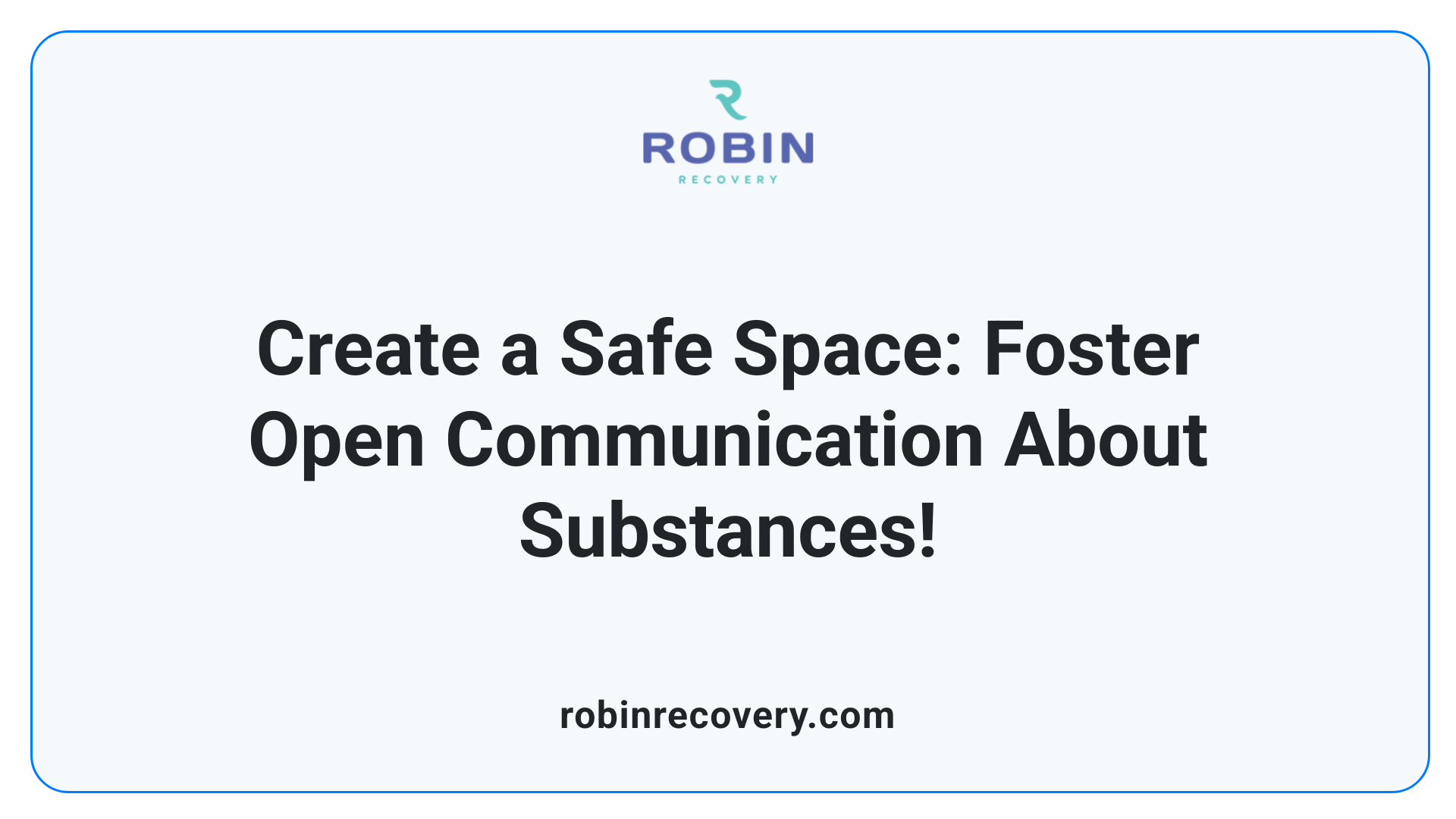
Fostering open communication in the family
Establishing an open family environment is crucial for discussing substance use. Parents should encourage regular conversations about drugs and alcohol without judgment, fostering a safe space for children to share their thoughts and feelings. Using active listening is key; it helps to validate children’s concerns and promotes ongoing dialogue.
Teachable moments
Parents can utilize casual "teachable moments" in everyday situations to introduce the topic of substance use. For instance, discussing current events or shows that depict drug use can spark important conversations. Engaging kids with open-ended questions about what they understand can further enhance communication.
Role of parents as models
Parents serve as vital role models for their children’s attitudes towards substances. Their behavior and openness about drug discussions set the tone for how children perceive and engage with these topics. It's important for parents to be mindful of their own actions and to express clear values around substance use.
Using Resources for Ongoing Support
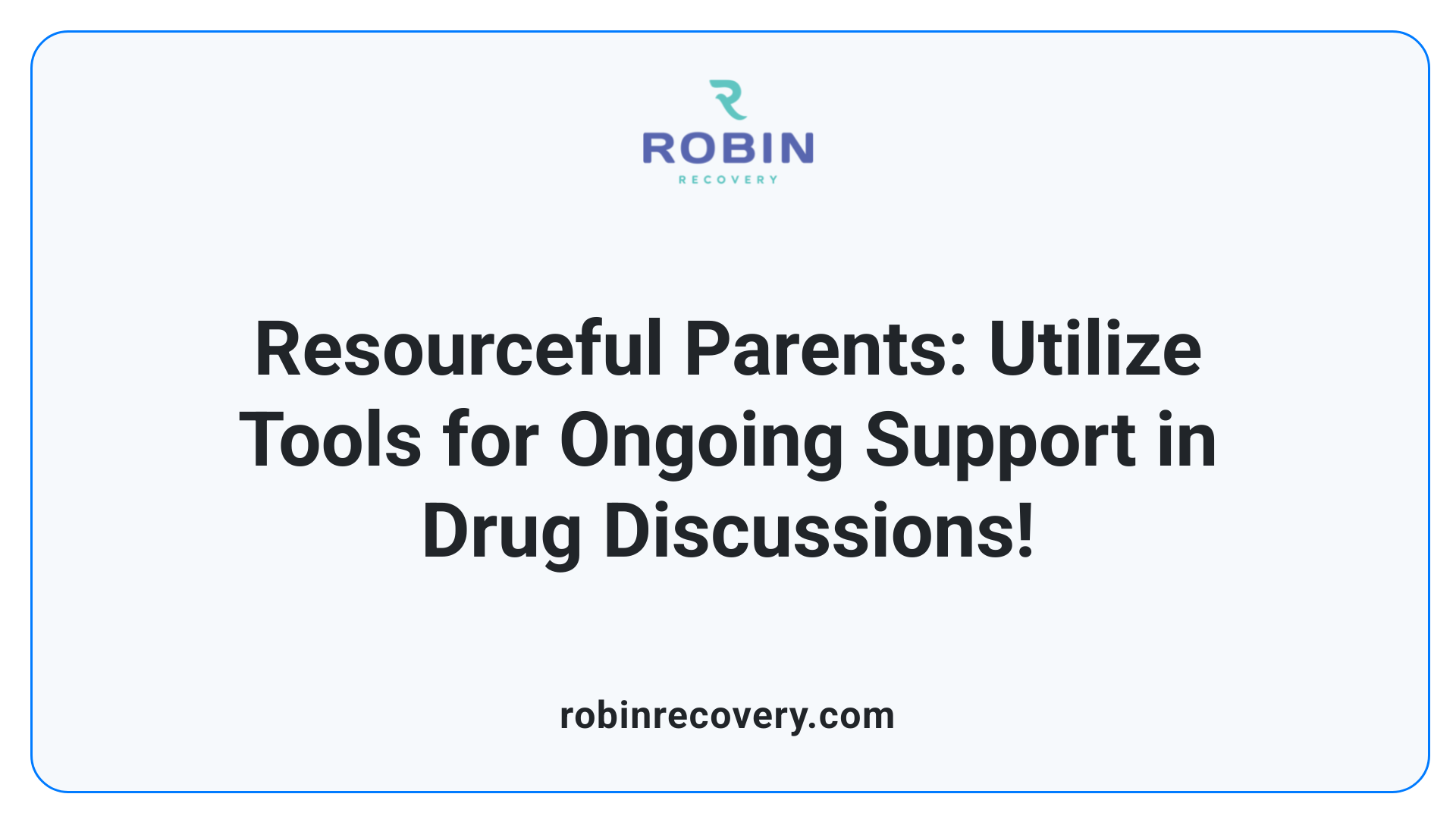
Identifying resources for parents and children
Parents often seek guidance to help navigate complex conversations about drugs and alcohol. Various resources are available, including educational materials, counseling services, and community groups. It's crucial to utilize these tools to facilitate open dialogues, improve understanding, and reinforce rules surrounding substance use.
SAMHSA’s National Helpline
A valuable resource is SAMHSA’s National Helpline. This free, confidential 24/7 service offers treatment referrals for those facing mental and substance use disorders. Parents can call to get assistance in both English and Spanish, ensuring they have access to information essential for their family’s well-being.
Engaging local community support
In addition to national resources, local support groups and organizations can provide community-specific information and support. Engaging with these groups can help parents connect with others facing similar challenges, facilitating a supportive network to rely on when having discussions about drug use with their children.
Empowering Parents for Continued Conversations
Navigating the conversations around drugs with children might seem daunting, but it is essential for building trust and keeping them informed. With consistent dialogue, age-appropriate discussions, and being a reliable source of knowledge and support, parents can guide their children through understanding the risks and making healthy choices. Utilizing resources like community support and helplines can also provide valuable assistance throughout this journey.
References
- National Helpline for Mental Health, Drug, Alcohol Issues - SAMHSA
- Teens and drugs: 5 tips for talking with your kids - Harvard Health
- Talking to Your Kids About Drugs (for Parents) | Nemours KidsHealth
- 8 Tips for Talking to Kids About Drugs - HealthPark Pediatrics
- Why It's Important To Talk To Your Child About Alcohol & Drugs
- Talking With Your Kids About Drugs, Alcohol, and Tobacco
- Prepare yourself to talk effectively - Drug Free Kids Canada
- Talking About and Spotting Substance Abuse - CAMH
- How to Talk to Your Kids About Drugs - Partnership to End Addiction
